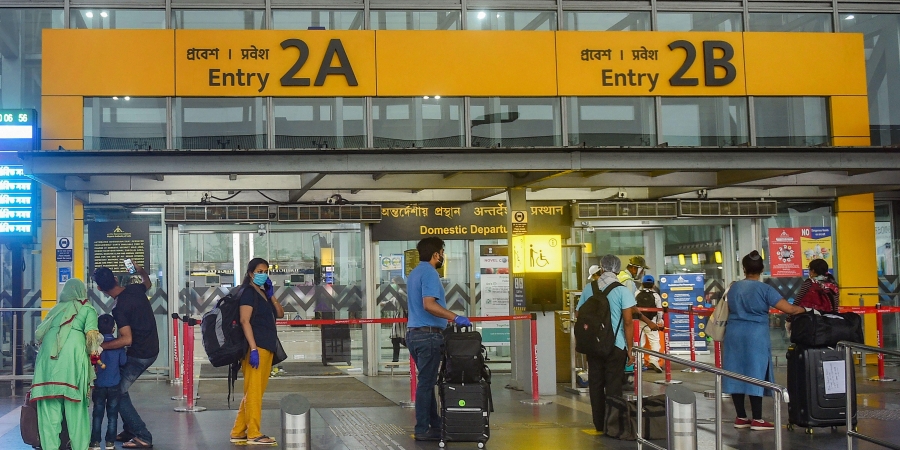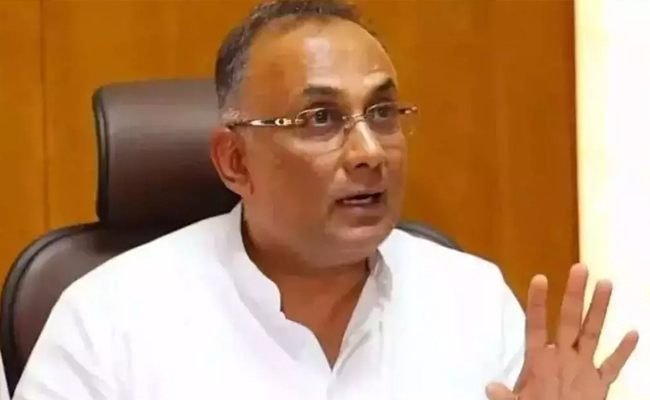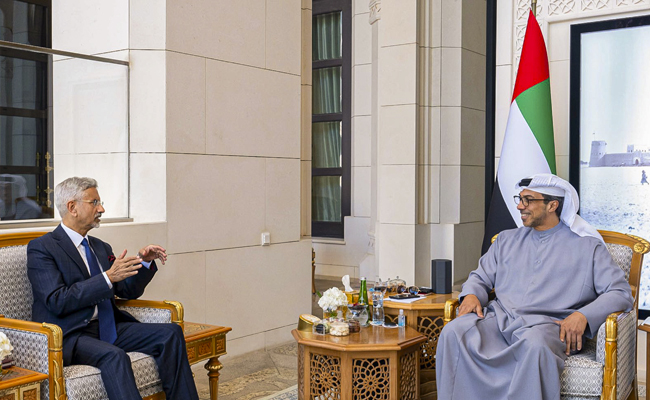Beijing, Aug 22: China on Monday announced plans to issue visas to hundreds of Indian students stranded at home for over two years due to Beijing's strict COVID restrictions, besides various categories of travel permits for Indians including business visas.
"Warmest congrats to #Indian #students! Your patience proves worthwhile. I can really share your excitement & happiness. Welcome back to #China!" Ji Rong, Counsellor, Department of Asian Affairs, Ministry of Foreign Affairs, China tweeted.
Her tweet cited a detailed announcement by the Chinese Embassy in New Delhi announcing the opening of visas for students, businessmen and families of those working in China.
As per the announcement, X1-Visa, will be issued to students who intend to go to China to pursue long-term study for higher academic education, including newly-enrolled students and students who return to China to resume their studies.
Over 23,000 Indian students, mostly studying medicine, are reportedly stuck back home due to COVID visa restrictions.
India had submitted a list of several hundred students after China sought the names of those wanting to return immediately to pursue their studies.
Some students from Sri Lanka, Pakistan, Russia and several other countries have already arrived on chartered flights in recent weeks.
Monday's announcement posted on the website of the Chinese Embassy in Delhi said student visas will be issued to the newly-enrolled students and the old students who could not travel to China due to COVID visa bans.
While the new students should produce original admission letter issued by a university in China, the old students need to submit a Certificate of Returning to Campus' issued by the university in China.
According to official sources, over 1,000 old Indian students have expressed wish to return to re-join their studies. It is to be seen whether the universities which are processing their requests would issue the certificates for them to apply for visas.
Another big problem was that there are no direct flights between the two countries. For the first time in over two years, a chartered flight engaged by Indian businessmen and their families arrived in the Chinese city of Hangzhou recently.
In July, China had permitted the family members of the Indian professionals working in China. Several of them arrived through the third country routes paying several times higher than the normal ticket rates.
Indian and Chinese officials say that talks are on between the two countries to resume flight operations. The category of visas which the Chinese embassy in India announced on Monday included C-Visa issued to crew members.
Other categories of visas announced by the embassy included M-Visa issued to those who intend to go to China for commercial and trade activities, F-Visa issued to those who intend to go to China for exchanges, visits, study tours and other non-commercial activities and Z-Visa for those who intend to work in China.
Other category permits included visas for the dependents of those working in China.
Let the Truth be known. If you read VB and like VB, please be a VB Supporter and Help us deliver the Truth to one and all.
New Delhi: A bill to set up a 13-member body to regulate institutions of higher education was introduced in the Lok Sabha on Monday.
Union Education Minister Dharmendra Pradhan introduced the Viksit Bharat Shiksha Adhishthan Bill, which seeks to establish an overarching higher education commission along with three councils for regulation, accreditation, and ensuring academic standards for universities and higher education institutions in India.
Meanwhile, the move drew strong opposition, with members warning that it could weaken institutional autonomy and result in excessive centralisation of higher education in India.
The Viksit Bharat Shiksha Adhishthan Bill, 2025, earlier known as the Higher Education Council of India (HECI) Bill, has been introduced in line with the National Education Policy (NEP) 2020.
The proposed legislation seeks to merge three existing regulatory bodies, the University Grants Commission (UGC), the All India Council for Technical Education (AICTE), and the National Council for Teacher Education (NCTE), into a single unified body called the Viksit Bharat Shiksha Adhishthan.
At present, the UGC regulates non-technical higher education institutions, the AICTE oversees technical education, and the NCTE governs teacher education in India.
Under the proposed framework, the new commission will function through three separate councils responsible for regulation, accreditation, and the maintenance of academic standards across universities and higher education institutions in the country.
According to the Bill, the present challenges faced by higher educational institutions due to the multiplicity of regulators having non-harmonised regulatory approval protocols will be done away with.
The higher education commission, which will be headed by a chairperson appointed by the President of India, will cover all central universities and colleges under it, institutes of national importance functioning under the administrative purview of the Ministry of Education, including IITs, NITs, IISc, IISERs, IIMs, and IIITs.
At present, IITs and IIMs are not regulated by the University Grants Commission (UGC).
Government to refer bill to JPC; Oppn slams it
The government has expressed its willingness to refer it to a joint committee after several members of the Lok Sabha expressed strong opposition to the Bill, stating that they were not given time to study its provisions.
Responding to the opposition, Parliamentary Affairs Minister Kiren Rijiju said the government intends to refer the Bill to a Joint Parliamentary Committee (JPC) for detailed examination.
Congress Lok Sabha MP Manish Tewari warned that the Bill could result in “excessive centralisation” of higher education. He argued that the proposed law violates the constitutional division of legislative powers between the Union and the states.
According to him, the Bill goes beyond setting academic standards and intrudes into areas such as administration, affiliation, and the establishment and closure of university campuses. These matters, he said, fall under Entry 25 of the Concurrent List and Entry 32 of the State List, which cover the incorporation and regulation of state universities.
Tewari further stated that the Bill suffers from “excessive delegation of legislative power” to the proposed commission. He pointed out that crucial aspects such as accreditation frameworks, degree-granting powers, penalties, institutional autonomy, and even the supersession of institutions are left to be decided through rules, regulations, and executive directions. He argued that this amounts to a violation of established constitutional principles governing delegated legislation.
Under the Bill, the regulatory council will have the power to impose heavy penalties on higher education institutions for violating provisions of the Act or related rules. Penalties range from ₹10 lakh to ₹75 lakh for repeated violations, while establishing an institution without approval from the commission or the state government could attract a fine of up to ₹2 crore.
Concerns were also raised by members from southern states over the Hindi nomenclature of the Bill. N.K. Premachandran, an MP from the Revolutionary Socialist Party representing Kollam in Kerala, said even the name of the Bill was difficult to pronounce.
He pointed out that under Article 348 of the Constitution, the text of any Bill introduced in Parliament must be in English unless Parliament decides otherwise.
DMK MP T.M. Selvaganapathy also criticised the government for naming laws and schemes only in Hindi. He said the Constitution clearly mandates that the nomenclature of a Bill should be in English so that citizens across the country can understand its intent.
Congress MP S. Jothimani from Tamil Nadu’s Karur constituency described the Bill as another attempt to impose Hindi and termed it “an attack on federalism.”



_vb_22.jpeg)

